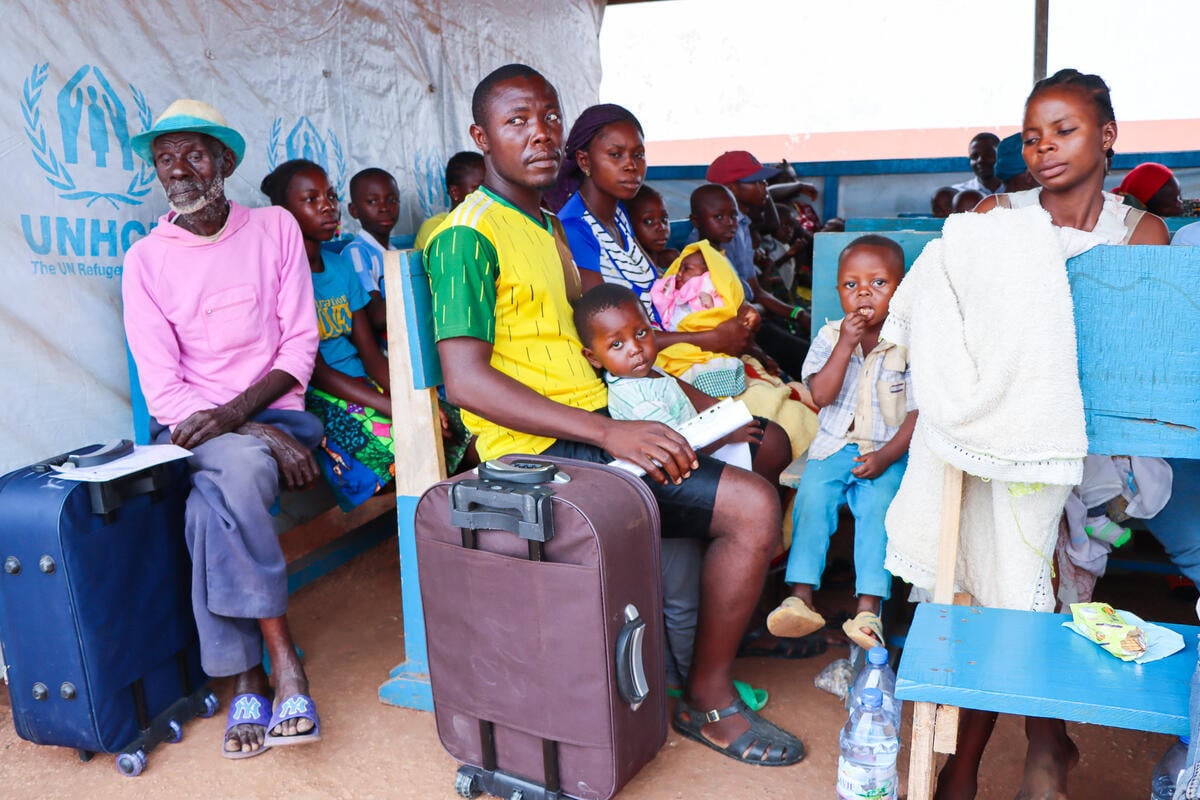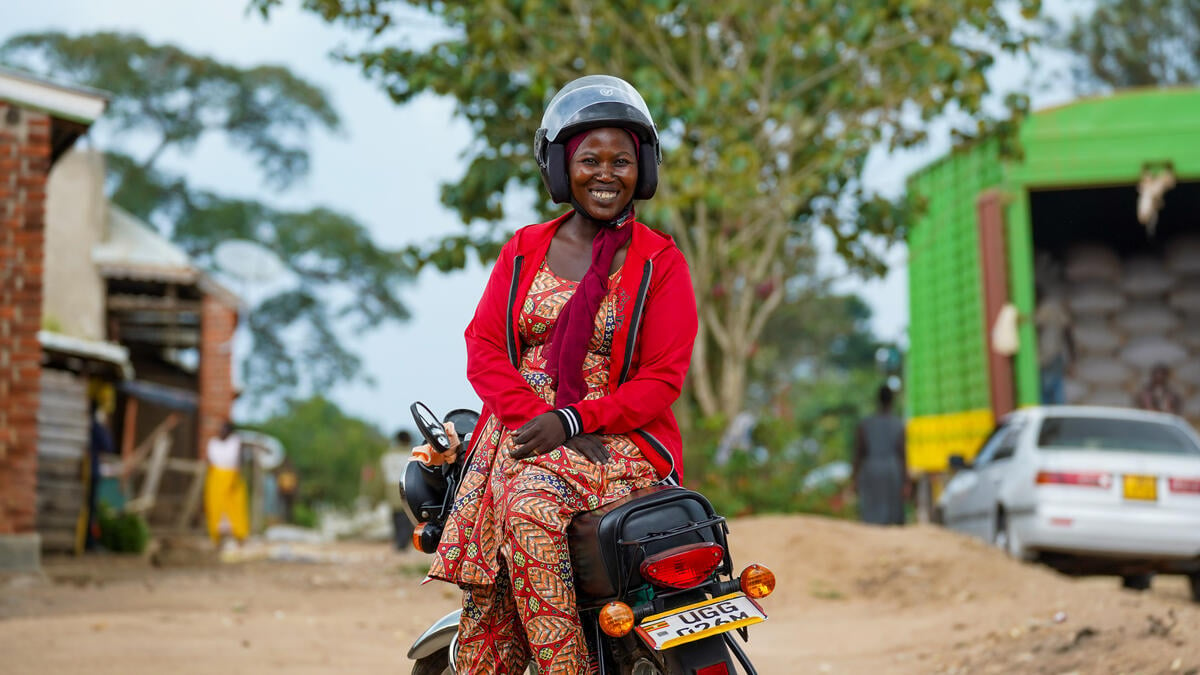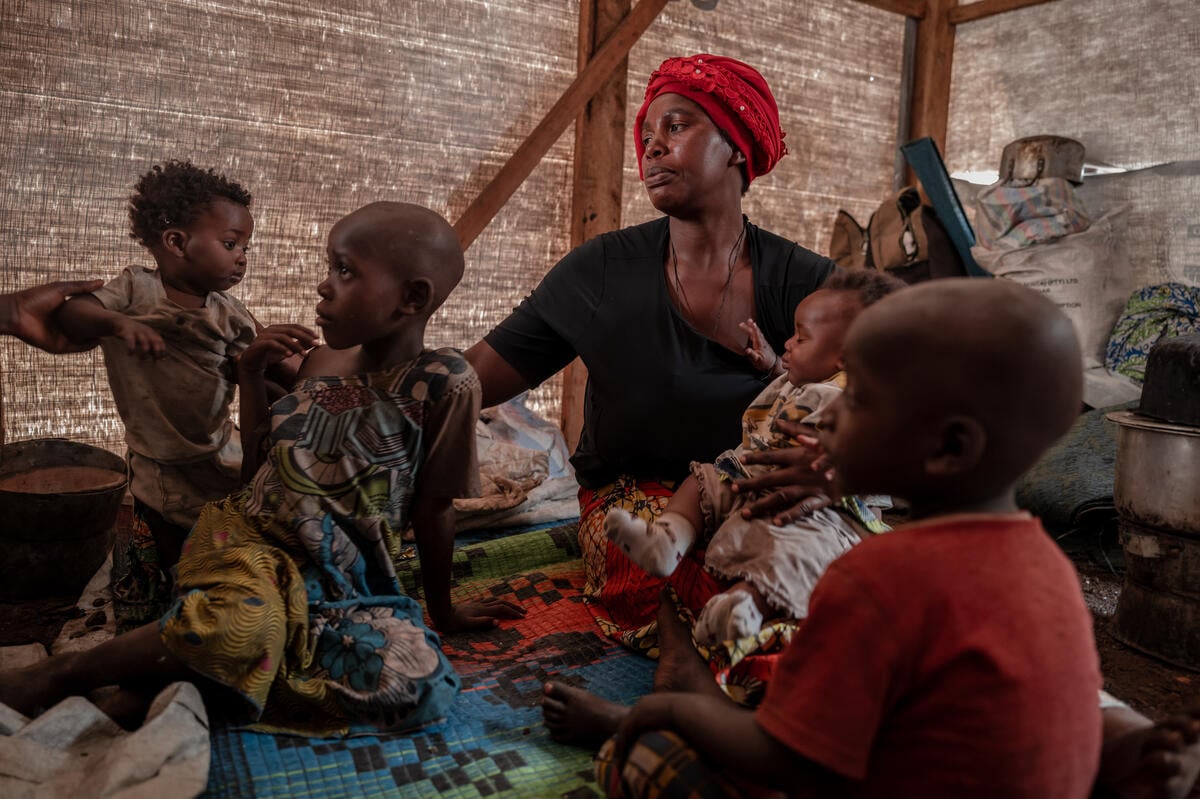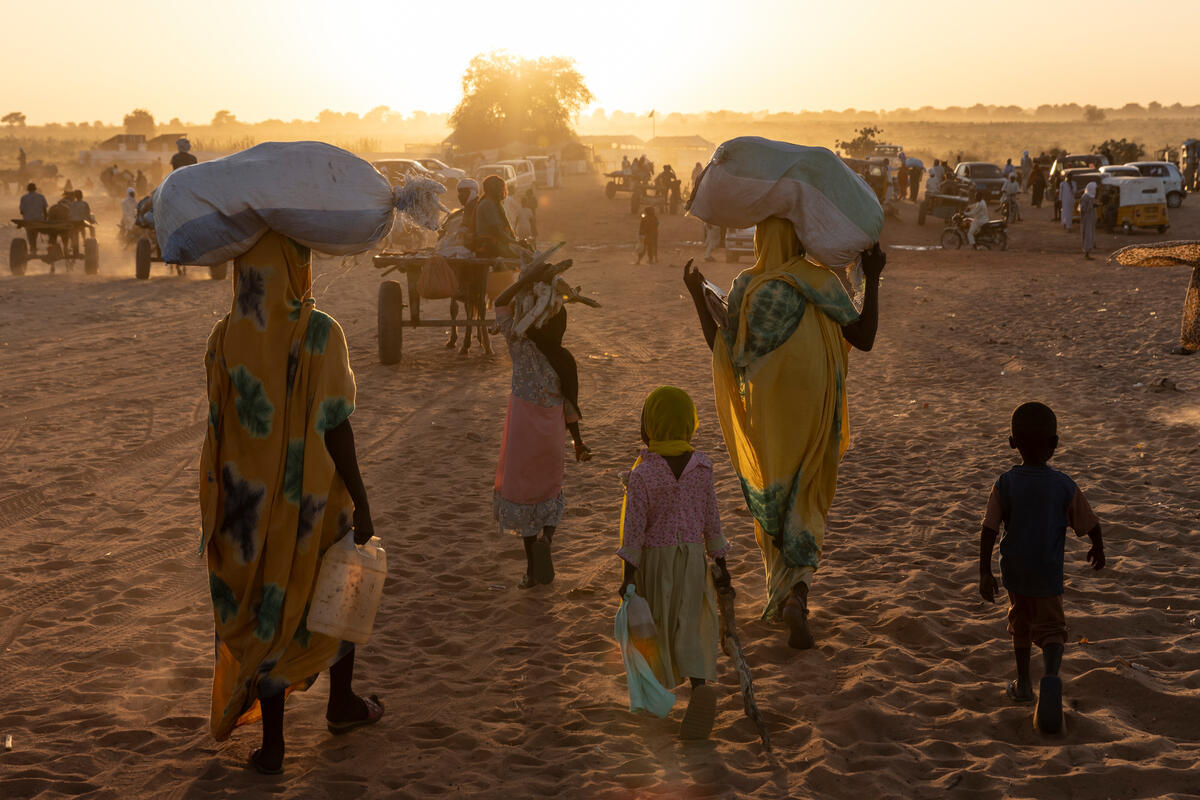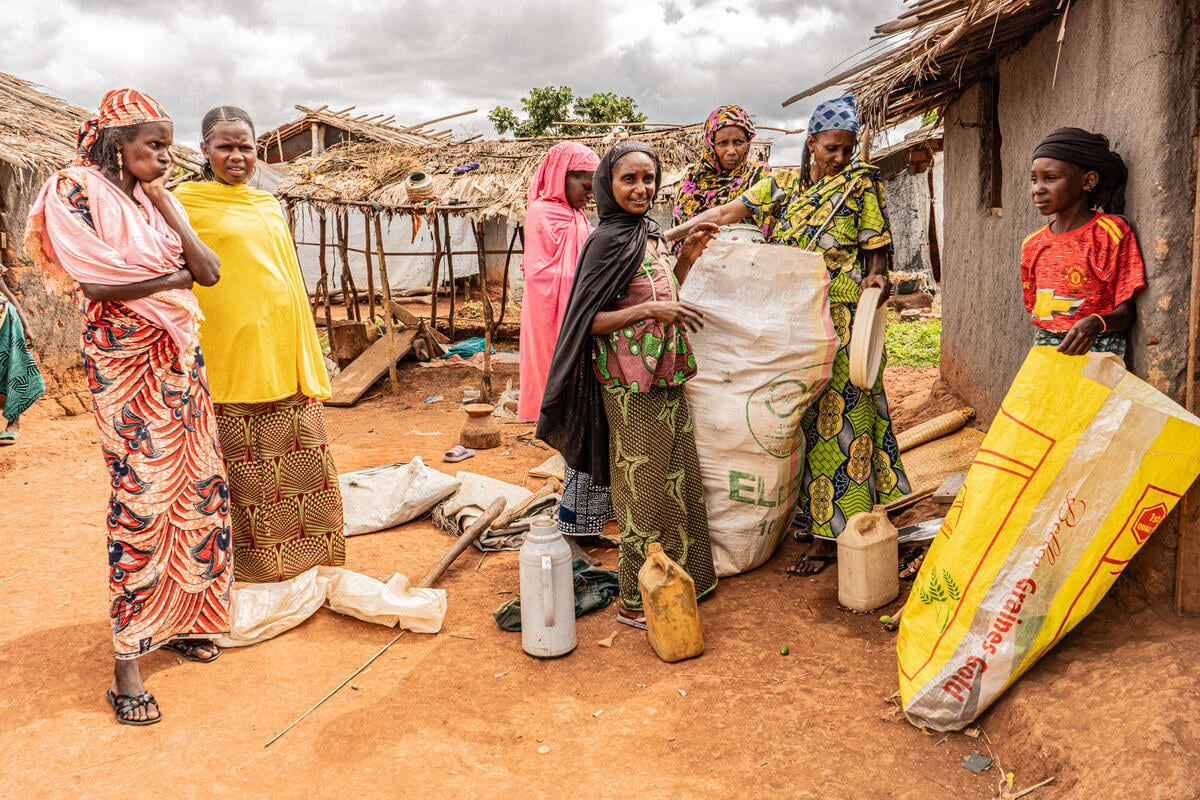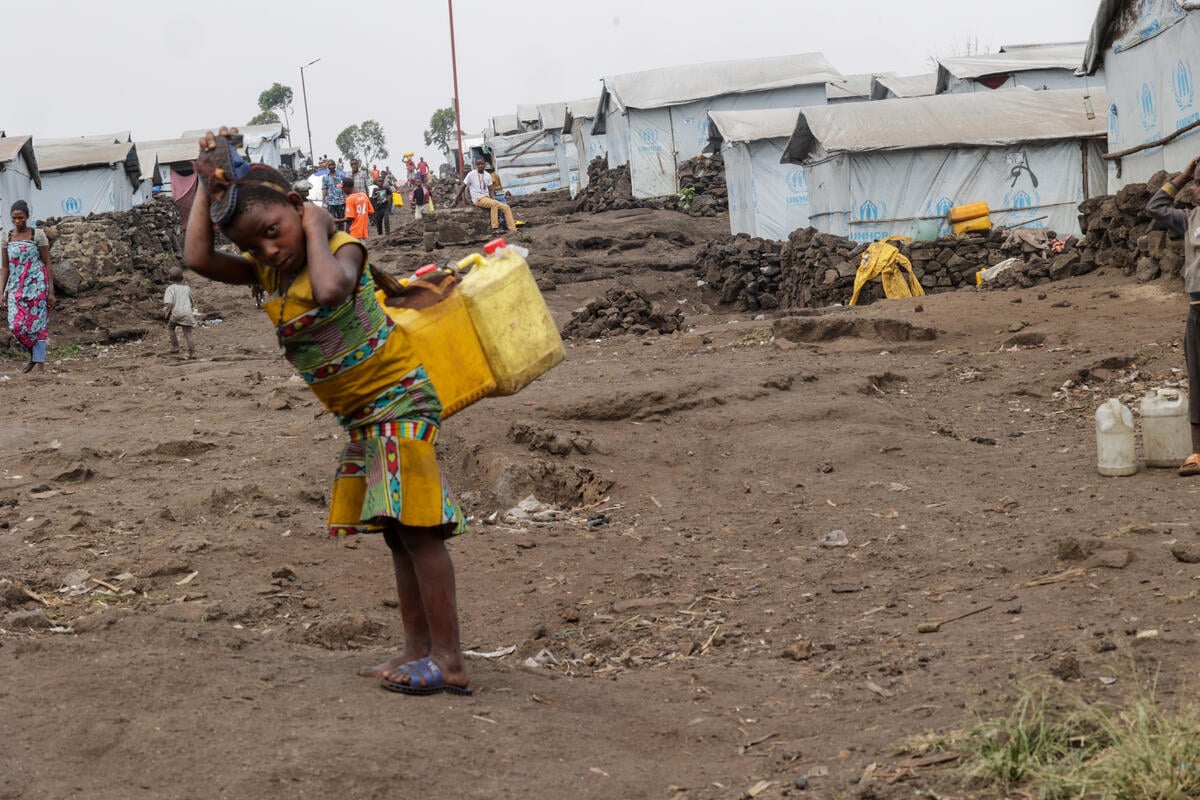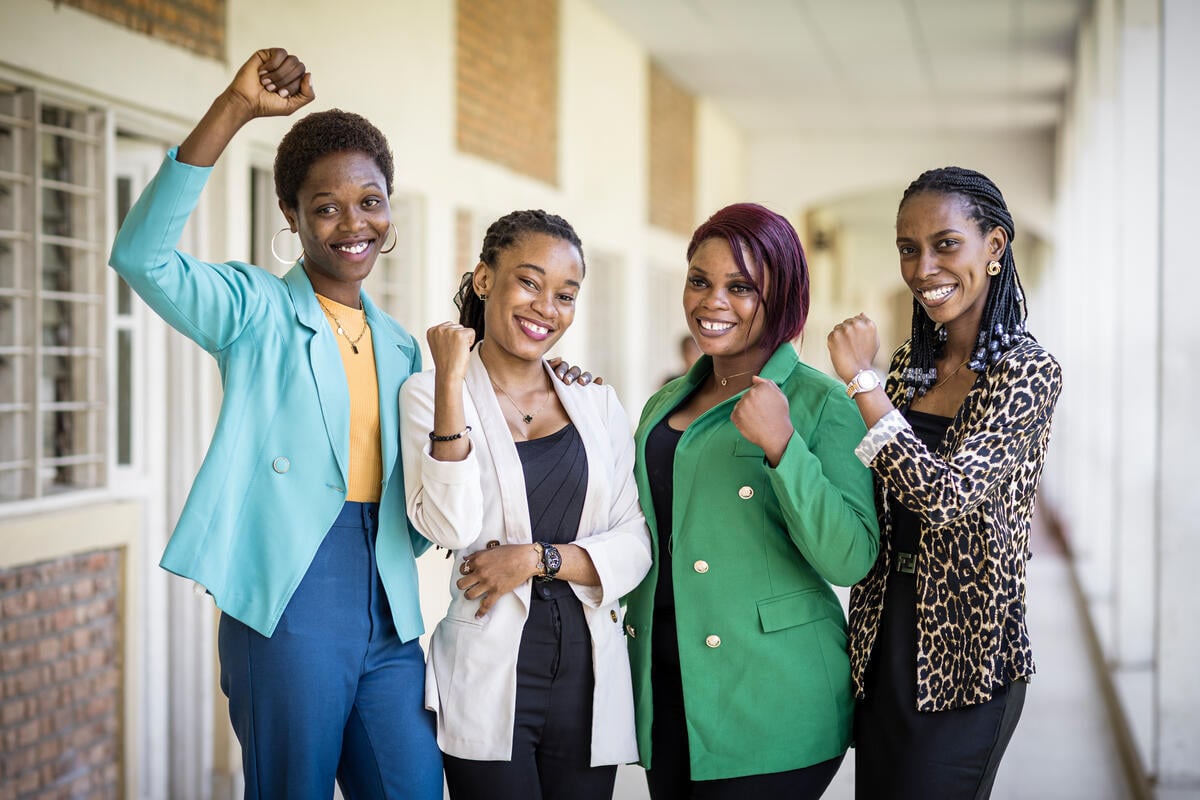Transfer of former Central African Republic soldiers completed; civilians to be moved to new camp
Transfer of former Central African Republic soldiers completed; civilians to be moved to new camp
ZONGO, Democratic Republic of the Congo, Nov. 20 (UNHCR) - The transfer of some 1,000 former Central African Republic soldiers from the border town of Zongo to an especially prepared site at Bokilio has been completed successfully, UNHCR said Tuesday.
With the transfer of the former soldiers finished, the refugee agency can now proceed with the relocation of thousands of refugees who fled the fighting in the Central African Republic earlier this year after an attempted coup. An estimated 24,000 entered the Democratic Republic of the Congo, but only about 10,000 are likely to ask for a transfer to the new camp at Mole south of Zongo.
The other refugees are likely to remain in the local communities where they have settled. This is in line with UNHCR's strategy for refugees in the Democratic Republic of the Congo given the poor security conditions and lack of access to many parts of the country.
UNHCR and several non-governmental organisations have constructed a health clinic and latrines at the Mole site, and plan to truck in water during the initial stages of the camp's operation. UNHCR planned to transport shelter material Tuesday to prepare for the initial 2,000 arrivals.
In a bid to encourage self-sufficiency, UNHCR will distribute fishing nets and hand out tools to those refugees who have found shelter with local villagers and are able to support themselves.
The transfer of the former soldiers, which began on October 15, was carried out by MONUC, the UN peacekeeping mission in the Congo, and local authorities at the insistence of UNHCR. The agency wished to preserve the civilian nature of the camps, thereby ensuring the safety of the refugees and the surrounding host populations.
About 200 of the former soldiers continue to live in villages scattered along the Ubangui River, but they are not considered a security risk because they are not mixing with civilians, UNHCR said. However, both the refugee agency and MONUC have told the soldiers they will receive assistance only if they move to Bokilio, located 120 kilometres from Zongo.
The soldiers at Bokilio will undergo a period of observation that could last several months during which it will be determined whether they have in effect laid down their arms and stopped all military activity. After the trial period they may apply for refugee status.

